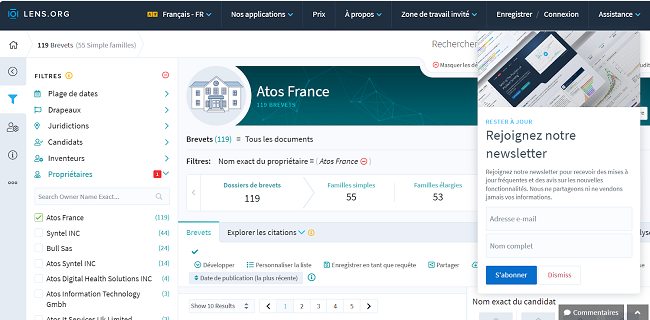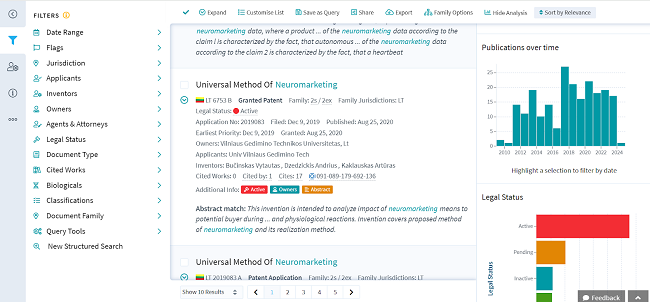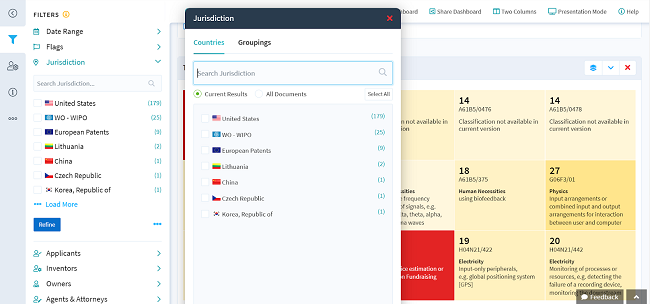Comment faire... - Friday 23 August 2024
Patent search

Economic actors participate in scientific and technical invention, which is reflected in the publication of patents. This is a legal obligation, in order to benefit from the intellectual protection afforded to innovative products by patents. Here, we'll look at how to search for patents with the aim of finding out more about economic players, rather than as potential patentees.
In French law, according to article L611-10 of the Code de la Propriété Intellectuelle : ”Are patentable, in all fields of technology, new inventions involving an inventive step and capable of industrial application.”
Most patent information is freely available on the Internet, as part of the government's open data policy. A number of free databases provide structured, cross-jurisdictional access to it. Here, we present their use for a first-level search, which is already a useful complement to the information gathered on an industrial player, be it a company, an R&D laboratory, or even a country.
The limits of patent information searches are linked to the characteristics of this type of document: a patent is in fact a disclosure of information that some companies prefer to keep to themselves, in order to preserve a competitive advantage.
Search for patents filed by a company or organization
The Lens is a highly structured, easy-to-use database: you can use the filters to refine a search by keyword or browse by criteria.

A patent search can be carried out to find out how dynamic an industry sector is, for example, to check whether the subject is worth tackling in a dissertation, or explored for a professional project. Take neuromarketing, for example:

Of course, you can also search for the number of patents filed in a given country or region of the world, over a given period, or on a specific theme.

There are, of course, other tools available for searching patent information, such as Data INPI for France and Europe, and IPC Publications for the rest of the world. But the tool presented here is well suited to an initial search. For further information, you can contact the K-lab team.




